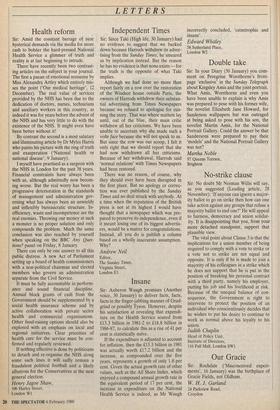No-strike clause
Sir: No doubt Mr Norman Willis will say, as you suggested (Leading article, 28 November): 'If anyone can ignore a major- ity ballot to go on strike then how can one take action against any groups that refuse a majority ballot to end one?' He will appeal to fairness, democracy and union solidar- ity. It is disappointing that you, from your more detached standpoint, support that plausible view.
The vital point about Clause 3 is that the implications for a union member of being required to comply with a vote to strike or a vote not to strike are not equal and opposite. It is only if he is made to join a majority of his colleagues in a strike which he does not support that he is put in the position of breaking his personal contract with a third party, namely his employer, putting his job and his livelihood at risk. Because of the unequal balance of con- sequence, the Government is right to intervene to protect the position of an individual who conscientiously decides that he wishes to put his desire to continue to work as normal above his loyalty to his union.
Judith Chaplin
Head of Policy Unit, Institute of Directors, 116 Pall Mall, London SW1


















































 Previous page
Previous page